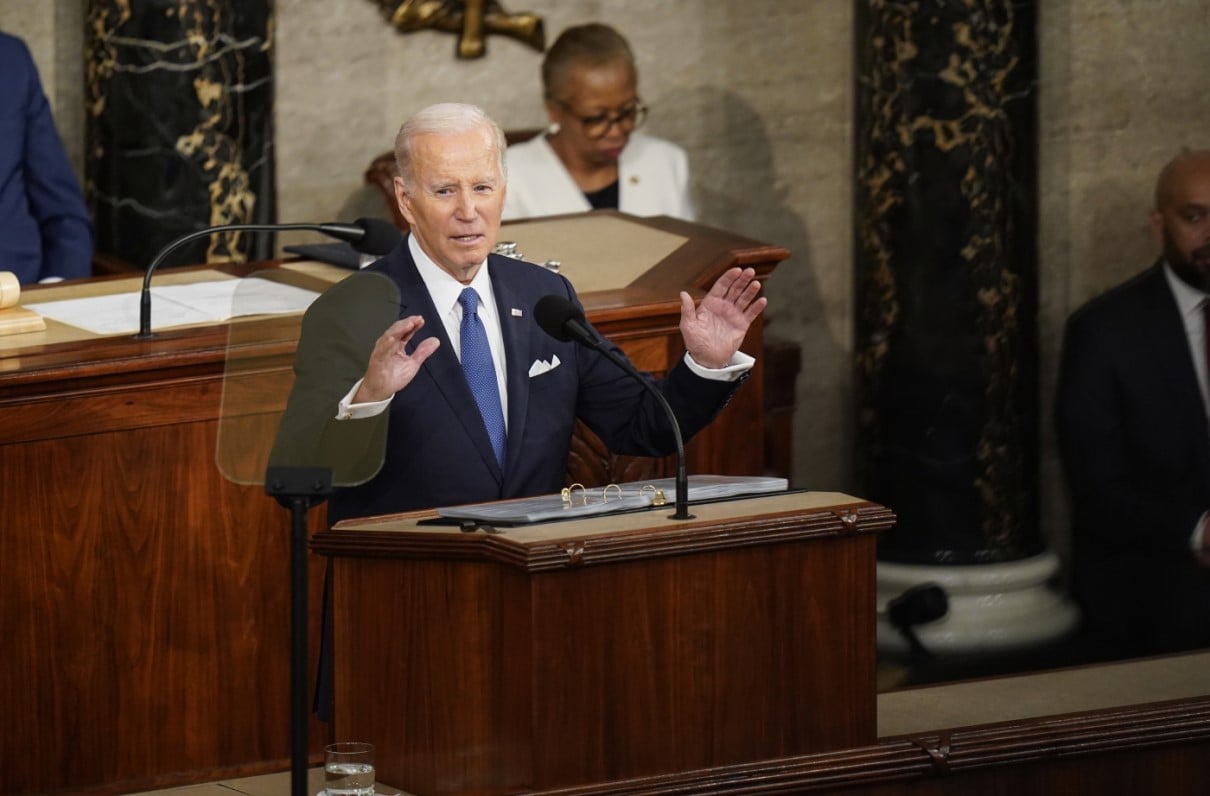By MOAA Government Relations Staff
This year’s State of the Union address comes as the nation functions without a full budget, as its civilian and military leaders engage with and monitor increasing threats around the globe, and as servicemembers past and present, and their families, worry whether they’ll receive the benefits they’ve earned.
MOAA’s work to secure these benefits has taken many forms over the decades, and while we will continue those efforts with our grassroots Advocacy in Action campaign this spring, President Joe Biden’s March 7 address offers a chance for some of these issues to receive the nationwide attention they deserve:
1. Protect DoD/VA Medical Care: The uniformed services community must not be left out of the national health care conversation, and the president should make clear the nation’s commitment to preserving both DoD and VA health resources. MOAA has worked to ensure changes to the TRICARE pharmacy plan, for example, will not have adverse effects on rural veterans or others with limited options for their prescriptions. We’ve also supported legislation to improve staffing at military treatment facilities and to expand elderly care and caregiver support programs within the VA.
While the State of the Union rarely reaches into specifics, the president must stress that these earned health care benefits won’t be dragged into budget battles or fall behind private-sector programs.
[RELATED: What a Major DoD Health Care Shift Could Mean for Your TRICARE Benefit]
2. Pass a Budget. As the fiscal year nears its halfway point, the damage done by continuing resolutions to DoD budgets alone likely will run into billions of dollars. While the president should urge Congress to fix a broken budget system, he should also acknowledge an unwelcome slide in recent years, by multiple administrations, in the timetable for delivering the annual budget request.
All in Washington must work to end these costly delays, and the State of the Union offers a platform to pledge support for such efforts.
3. Make Quality of Life a Priority. MOAA has worked closely with the new House Armed Services Committee Quality of Life Panel – a bipartisan group of lawmakers whose upcoming proposals may make a big difference for servicemembers and families if they are included in the FY 2025 National Defense Authorization Act (NDAA).
From barracks and housing improvements to mental health concerns to spouse employment, the panel’s formation shows servicemember quality of life matters to congressional leaders – the president should make it clear it matters to the nation, both as a duty to those who serve and as a way to strengthen recruitment and retention. The panel has signaled its support for the BAH Restoration Act, a centerpiece of MOAA's spring advocacy campaign which would restore the Basic Allowance for Housing to 100% of costs.
[TAKE ACTION: Ask Your Lawmakers to Restore BAH to 100%]
4. Toxic Exposure Benefits. The Sergeant First Class Heath Robinson Honoring our Promise to Address Comprehensive Toxics (PACT) Act has offered the biggest expansion of health care to veterans in decades. MOAA expects the president to highlight the expansions the administration has made ahead of deadline.
Addressing this issue in front of Congress is important because it will reinforce the need for Congress to continue to ensure veterans’ programs are funded as the desire to tighten purse strings looms.
5. Concurrent Receipt. The president can highlight the need to keep our promise to our combat-injured veterans by signaling to Congress that it should pass the Major Richard Star Act this year.
Over two-thirds of lawmakers support this legislation, a bill which would remove an unjust offset that reduces the medical retirement pay earned by our combat-injured veterans through extraordinary personal sacrifice. The bill is an example of keeping a sacred promise to those who serve.
[TAKE ACTION: Ask Your Lawmakers to include the Major Richard Star Act in the FY 2025 NDAA]
Have another topic worthy of the list? Email legis@moaa.org with your suggestion. Your feedback helps MOAA shape its advocacy efforts.
When MOAA Speaks, Congress Listens
Learn more about MOAA’s key advocacy issues, and contact your elected officials using our messaging platform.
